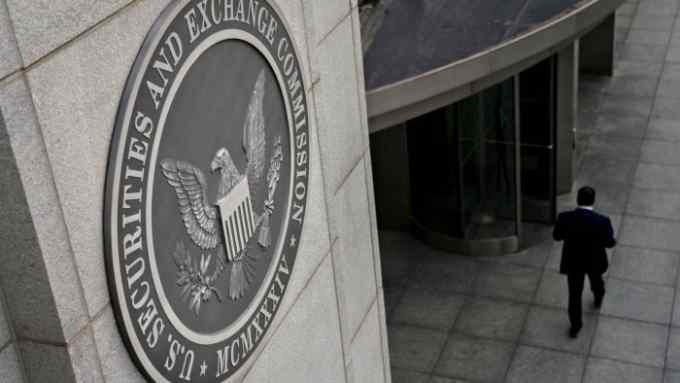Disclosures show Ark has removed limits on company ownership

Simply sign up to the Exchange traded funds myFT Digest -- delivered directly to your inbox.
Interested in ETFs?
Visit our ETF Hub for investor news and education, market updates and analysis and easy-to-use tools to help you select the right ETFs.
Ark Investment Management has removed restrictions from its exchange traded funds that limited how much the funds could hold in a single company, recent disclosures show.
Previously, the manager allowed its ETFs to hold up to 30 per cent of their assets in a single company, prospectuses show. The funds were also prohibited from owning more than 20 per cent of a single company’s outstanding shares.
But Ark removed those limits, effective immediately, the firm disclosed at the end of March.
Ark also removed language prohibiting its actively managed ETFs from investing more than 35 per cent of their assets in depository receipts, including American depository receipts used by foreign companies, and other types of securities, filings show. It also removed a limitation capping active funds’ investments at 10 per cent of assets in unsponsored ADRs that are traded over the counter.

This article was previously published by Ignites, a title owned by the FT Group.
None of Ark’s funds' investments are close to the previous limit on fund assets held in a single company, disclosures on the Ark website showed on April 5. The products’ biggest bet was in Tesla, which made up 10.78 per cent of the $21.5bn Ark Innovation ETF, 10.7 per cent of the $6.7bn Ark Next Generation Internet ETF and 10.41 per cent of the $3.2bn Ark Autonomous Technology and Robotics ETF.
Overall, 7.36 per cent of Ark’s ETF assets were in Tesla as of December 31, according to FactSet, a data provider. The manager’s ETFs had $34.8bn in assets under management as of that date, the database shows.
The removal of limits on ADRs may have the biggest impact, especially for Ark’s flagship Innovation ETF, said Robby Greengold, a Morningstar strategist.
However, the Innovation ETF’s strong performance and inflows have “made it more difficult than before for the ETF to make meaningful investments in the kind of innovative small and microcap companies that have historically been prominent in the portfolio”, Greengold said.
Investors added $15.8bn to the Innovation ETF over the year ended March 29, according to FactSet data. The fund returned 152.51 per cent in 2020, Ark’s website showed.
Ark executives have also said they saw more opportunities to invest in foreign companies, Greengold added. The company last year hired an analyst who focuses exclusively on innovation in Asian investments.
But Greengold said he would be surprised to see Ark’s ETFs invest substantially more than 10 per cent of their assets in any one company.
Cathie Wood, Ark’s chief executive and lead portfolio manager, had previously said that her company’s funds had a “self-imposed” restriction on investing more than 10 per cent of assets in a single company.
Top positions in Ark’s funds have historically maxed out at 12-13 per cent, Greengold said.
At the end of 2020, Ark’s ETFs owned more than 20 per cent of the outstanding shares of Compugen and Statasys, according to FactSet data. But those positions were spread out across its different funds, Greengold noted.
Ark earlier in March published a white paper outlining a new price target for Tesla, predicting that the company’s share price could hit $3,000 by 2025.
Other funds have attracted criticism for even larger bets on Tesla. Morningstar in January downgraded its rating for the $7bn Baron Partners Fund from bronze to neutral because the fund had allowed its position in Tesla to balloon to 47 per cent of assets as of December 31. That share had fallen to 39.5 per cent by the end of February, according to Baron Funds’ website.
US mutual fund concentration and diversification rules require funds to disclose if they will hold more than 25 per cent of their portfolio in a given sector or more than 5 per cent of their portfolio in a single security. But an appeals court ruled in 2019 in a case against the Sequoia Fund that a fund could exceed those thresholds if they were caused by market movements.
Like other transparent ETFs, Ark’s funds publicly disclose their holdings each day. Investors can also sign up to receive notifications of any trades that the firm makes in its actively managed ETFs.
Ark also last month added language to the prospectus disclosing the risks of investing in special purpose acquisition companies, or Spacs — so-called blank-cheque companies designed to take private companies public through mergers or acquisitions.
Some of Ark’s ETFs invest in Spacs. As of April 5, the $3.2bn Ark Autonomous Technology & Robotics ETF held 0.42 per cent of its assets in Atlas Crest Investment Corp, a Spac that went public last year and announced in February it would acquire electric airline company Archer. Another 0.24 per cent of the fund’s assets were in Jaws Spitfire Acquisition Corp, a Spac backed by Serena Williams that last month agreed to take 3D printer Velo3D public.
Investors added $36.5bn to Ark’s ETFs collectively over the year ended February 28, according to data from Morningstar Direct. The firm was the ninth-largest ETF issuer at the end of last month, with $51.3bn in assets, Morningstar data shows.
*Ignites is a news service published by FT Specialist for professionals working in the asset management industry. It covers everything from new product launches to regulations and industry trends. Trials and subscriptions are available at ignites.com.

Click here to visit the ETF Hub

Comments